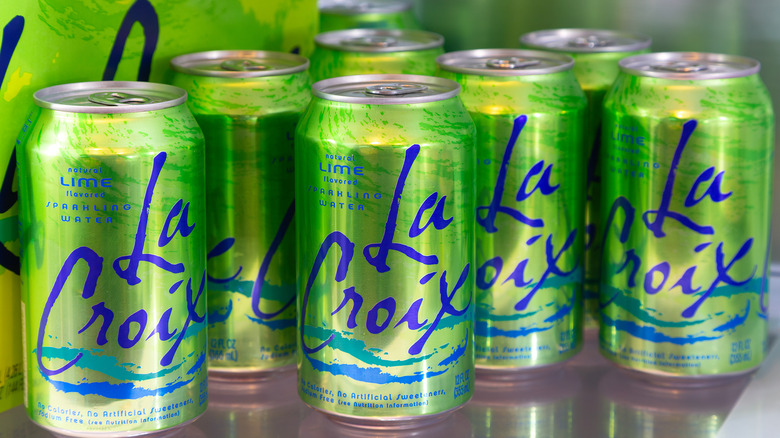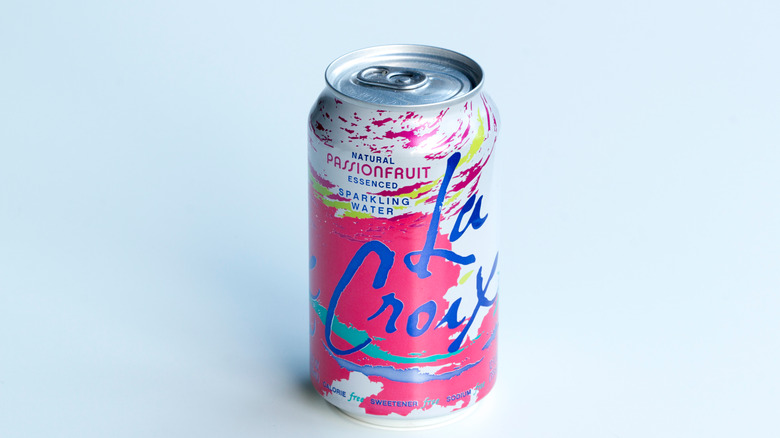The Reason Someone Tried To Sue LaCroix
In February 2020, a plaintiff retracted a lawsuit against National Beverage Corporation — the owners of LaCroix – that claimed the company didn't solely use natural ingredients. When the case first appeared in 2018, it caught headlines with alarmist points about one of the supposedly synthetic ingredients, as Popular Science quotes: "These chemicals include limonene, which can cause kidney toxicity and tumors; linalool propionate, which is used to treat cancer; and linalool, which is used in cockroach insecticide." And very few, if any, want to drink cockroach insecticide.
However, the Popular Science article goes on to note that all of the mentioned chemicals had natural, benign counterparts. Linalool, the insecticide, is a flavoring found in mint and cinnamon; while it appears in insecticides, their presence doesn't make it a poisonous threat. To take their example, we don't ban chocolate even though it serves as an excellent canicide. So, you can almost certainly relax with that paused can of LaCroix.
LaCroix wins and wins
The aforementioned lawsuit was dropped shortly before our headlines were filled with the coronavirus pandemic. As Food Navigator reported, the plaintiff didn't just rescind her complaint, but issued a complete apology to LaCroix for insinuating anything about their product. "This is a vindication of National Beverage," the company crowed, "and confirms the assurances we gave to our loyal following of LaCroix consumers, our customers and our shareholders that the lawsuit was baseless." As an expert told Food Navigator, such a public recantation of one's case was very unusual.
A less public lawsuit occurred when Albert Dejweski, as CBS News reports, sued National Beverage in 2019 for firing him after he objected to alleged plans held by management to falsely claim their products were free of BPA, or Bisphenol A. Similar to the accusations of insecticide, the case didn't appear strong. In this instance is was due to the FDA approving the product. However, no other reports have followed the lawsuit, making it seem that National Beverage Corporation managed to stop the issue before it grew big enough to warrant Dejweski's public apology.

